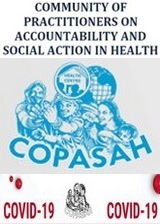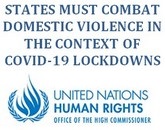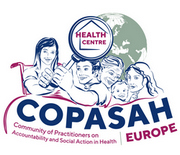
The Association for Emancipation, Solidarity and Equality of Women-ESE develops and assists the women’s and civic leadership for promotion and implementation of human rights and social justice in our society since 1995. By promoting and advancing the human rights, we improve the social and economic justice. We are especially dedicated to the work in the area of promotion and improvement of the health and women’s human rights.
In cooperation with 10 other civic organizations, and supported by the Foundations Open Society from New York and Macedonia, we prepared this submission as part of the second reporting cycle of RM to the Universal Periodic Review, whereby we indicate the problems and recommendations for improvement of the health of Roma people, people living with HIV/AIDS, LGBT population, drug users, sexual workers, women, people with intellectual disability and victims of human trafficking.
The following civil society organizations contributed to the drafting of this submission: Citizen Association KHAM; Coalition sexual and health rights of marginalized communities; Health Education and Research Association - H.E.R.A.; HOPS- Healthy Options Project Skopje; LGBTI Centre for support – Helsinki Committee for Human Rights, Macedonia; National Roma Centrum; Republic centre for support of persons with intellectual disability – Poraka; Roma Resource Centre; Roma Organization for multicultural affirmation - ROMA SOS Prilep; Open Gate – La strada.
Joint Submission on health to the UN Universal Periodic Review
June 2013

For millions of people around the world, human rights violations are part and parcel of everyday life—ranging from sexual violence, discrimination in access to housing, and denial of child support, to unfair dismissal from employment, police harassment, and arbitrary detention. Such violations have a particularly harsh impact on individuals whose health is already compromised and who find themselves excluded from civic participation.
In Kenya, people who use drugs routinely face exaggerated criminal charges and heavy sentences, which contribute to their marginalization from society. A quota system in Russia motivates police to reach target numbers of drug-related convictions, resulting in countless arbitrary arrests, while in Indonesia, drug-using populations are subjected to lengthy pretrial detention and extortion at the hands of police and prison guards. Sex workers in Kenya and South Africa face high levels of police violence and harassment and have nowhere to turn for protection from abuse. People living with HIV are frequently dismissed from employment and suffer abandonment and violence based on their status; in Kenya and Uganda, women are often forced into the streets with their children when their husbands die of AIDS, their property rights all but illusory.
The health care system itself is all too often overrun with coercive treatment and violations of patients’ rights to consensual treatment and confidentiality. Members of Macedonia’s Roma population, in particular, frequently face outright denial of health care services, in addition to misinformation and abuse. Palliative care patients in Kenya are often left unaware of social benefits or pain management tools available to them, and are denied the chance to make basic arrangements regarding property disposition and family planning.
The right to health is an internationally recognized right. This right is defined for the first time by the World Health Organization as “a right of everyone to the highest attainable standard of physical and mental health”.
The right to health is closely linked to the protection of patients’ rights which represent a set of rights, responsibilities and obligations under which individuals seek and receive health care services.
People with intellectual disability have the equal right to access and use the services which are provided within the framework of the health care facilities as well as any other citizen in the country. Their marginalization in the social and public life has a negative impact on the level of exercise of the rights regulated within the health laws, including the Law on health care, Law on health insurance and Law on protection of patients’ rights.
The findings from the research on the level of establishment and operation of the legally set mechanisms for protection of patients’ rights indicate evident stagnation in the implementation of the Law on the protection of patients’ rights.
Thus, the following conclusions were drawn from the conducted analysis regarding the establishment and operation of each mechanism for protection of patients’ rights:
Mechanisms for protection of patients’ rights |
Research findings |
|
1. Councilors for protection of patients’ rights in inpatient health care facilities |
Councilors for protection of patients’ rights are appointed in 5 out of the 56 inpatient public health care facilities, whereby none is appointed in the inpatient health care facilities located in the eastern part of the Republic of Macedonia. |
|
2. Persons for protection of patients’ rights in outpatient health care facilities |
The majority of the outpatient health care facilities have appointed persons for protection of patients’ rights. |
|
3. Person for protection of patients’ rights in the Ministry of Health |
The Minister of Health has not appointed/authorized person for protection of patients’ rights in the Ministry of Health |
|
4. Local Commissions for promotion of patients’ rights |
Only 25% of the units of local self-government have instituted a commission for promotion of patients’ rights. Only part of the instituted commissions is functional. |
|
5. State Commission for promotion of patients’ rights |
The State Commission for promotion of patients’ rights is yet to be formed by the Ministry of Health. |
|
6. Office for assistance in the Health Insurance Fund |
The Health Insurance Fund of the Republic of Macedonia set up offices for assistance to insured patients for the implementation and protection of their rights regarding health insurance in most of its regional offices. |
|
7. State Sanitary and Health Inspectorate |
The State Sanitary and Health Inspectorate did not receive the funds foreseen for the implementation of the Programme for protection of consumers’ rights 2011 – 2012, thus it failed to implement the planned activities for promotion of the Law on the protection of patients’ rights which are foreseen with the Programme. |
The Republic of Macedonia, after 22 years since the independence, has failed to establish a legitimate, continuous and non-selective process of citizen participation in the operation of the local self-governments. After 15 years since the ratification of the European Charter of Local Self-Government and 8 years since the establishment of self-governing and independent units of the local self-government, the citizens of the Republic of Macedonia still only qualify as constituents and are not actively involved in the budget process or in the process of making decisions implemented at local level, although there are legal possibilities for this.
In the Municipality of Tetovo, citizens are insufficiently informed about the composition, the operations and the organization of the executive and legislative government and the local public administration; they are not informed about the municipal budget and the local budget process; they are not involved in the process of making decisions of local interest nor they participate in the preparations of the municipal budget; they are not informed about the developments in the budget process nor are they involved in its implementation; they have no trust in the local government and are not satisfied with the circumstances at local level.
This document particularly points out to existing international, regional and national documents that regulate the right of the citizens to participate in the application of public duties and to be informed; the term and the practice of citizen participation in the budget process and the decision making process in Macedonia and globally, as well as findings and conclusions of the survey in the Municipality of Tetovo; it also proposes solutions for involvement of the local population in the budgeting process and the process of making decisions at local level, as well as for increasing transparency and accountability of the local self-government units.































